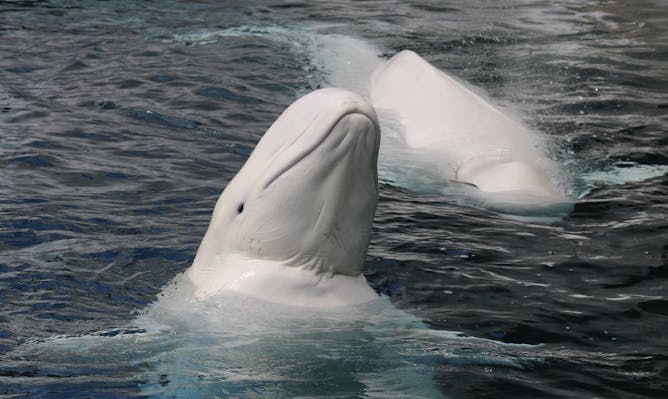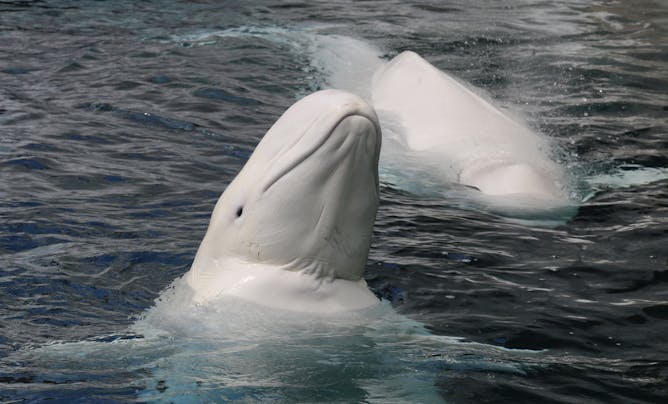|
With the recent removal of COVID-19 restrictions, the Canadian job market is finally starting to recover from the effects of the pandemic.
The hot job market, coupled with the increase in remote work options, is leading to an increase in the number of people seeking to relocate to cities that offer a balance between good salaries and a better lifestyle.
Today in The Conversation Canada, Hoda Khalil, Gabriel Wainer and Kevin Dick from Carleton University take us through the results of their recent study on the Canadian job market during the pandemic.
Their findings show that Canadians are likely to start moving to cities with higher salaries and lowerer costs of living, like Saskatoon and Edmonton. The Bank of Canada's recent interest rate hike is expected to cool down the housing market, making the decision to move seemingly easier than ever.
However, Khalil, Wainer and Dick caution Canadians against uprooting their lives to move across the country. They explain that when the economy is unstable, as it is at the moment, recently hired people tend to be laid off first.
Instead of making risky financial decisions, they recommend Canadians focus on reducing their expenses by paying off debts and delaying large purchases in anticipation of the coming recession.
Also today:
All the best.
|

With the increase in remote work options, workers and their families are seeking to relocate to cities that offer a balance between good salaries and a better lifestyle.
(Shutterstock)
Hoda Khalil, Carleton University; Gabriel Wainer, Carleton University; Kevin Dick, Carleton University
While it seems lucrative to move to cities that offer higher salaries and better quality of life, Canadians should consider some key factors before changing jobs.
|

A study showed that an endangered population of beluga whales in the St. Lawrence River had one of the world’s highest concentrations of the flame retardant, PBDE, in their blubber.
(Shutterstock)
Jonathan Verreault, Université du Québec à Montréal (UQAM)
Flame retardants are added to consumer products — and end up in the environment and harming aquatic wildlife.
|

A Toronto woman was set on fire on a TTC bus: police say they are investigating it as a hate-crime.
(Toronto Police Service)
Myrna Dawson, University of Guelph
Last week, a young woman died after being set fire on a Toronto bus. Police are investigating it as a hate-motivated act. Why is violence against women not treated more often as a hate crime?
|

Ongoing monitoring of students in early grades will be important to identify how missing out on in-person classes has affected students.
(Allison Shelley/The Verbatim Agency for EDUimages)
Natalie Spadafora, McMaster University; Magdalena Janus, McMaster University
The lack of a fully interactive environment in kindergarten due to pandemic school closures may negatively impact some children’s learning in later grades.
|

Activists hold slogans as they protest against Chinese aggression in the South China Sea outside the Chinese consulate in Makati, Philippines in November 2021.
(AP Photo/Aaron Favila)
Margaret McCuaig-Johnston, L’Université d’Ottawa/University of Ottawa; John Garrick, Charles Darwin University
China is posing many challenges to the Indo-Pacific region in 2022. How should Canada and Australia respond?
|

Devrait-on s’inquiéter de la présence de retardateurs de flamme dans le fleuve Saint-Laurent?
(Shutterstock)
Jonathan Verreault, Université du Québec à Montréal (UQAM)
Plusieurs produits chimiques de la famille des retardateurs de flamme, ajoutés à une gamme de produits de consommation courante, se retrouvent dans l’environnement et contaminent la faune aquatique.
|
Ukraine Invasion
|
-
Robert M. Dover, University of Hull
World leaders should worry about the security risks and economic balance of power with China.
|
|
Health
|
-
Adam Taylor, Lancaster University
People have been known to die of a broken heart. New research suggests they can also die of happiness.
|
|
Politics
|
-
Amalendu Misra, Lancaster University
Corruption, mismanagement and financial pressure from China all contributed to Sri Lanka’s economic turmoil.
|
|
Science + Tech
|
-
Kate Ann Markey, University of Washington
Patients with blood cancer undergoing stem cell transplantation have a high risk of complications. The bacteria in their gut, however, can help their immune system recover and fight infections.
|
|